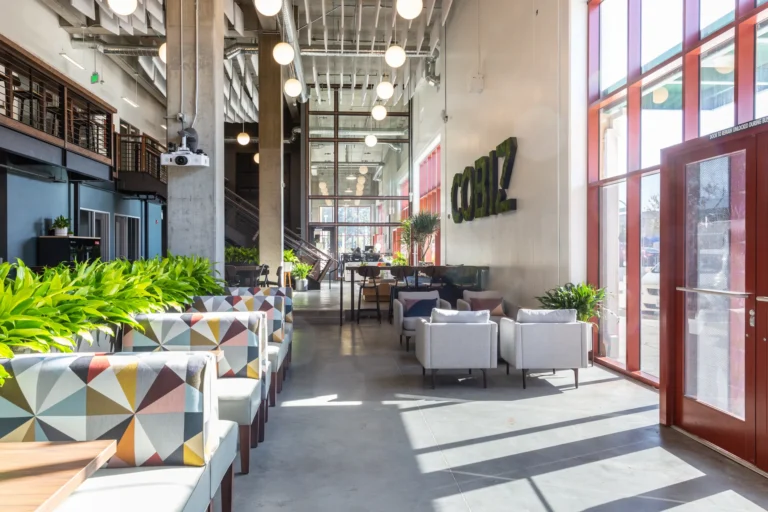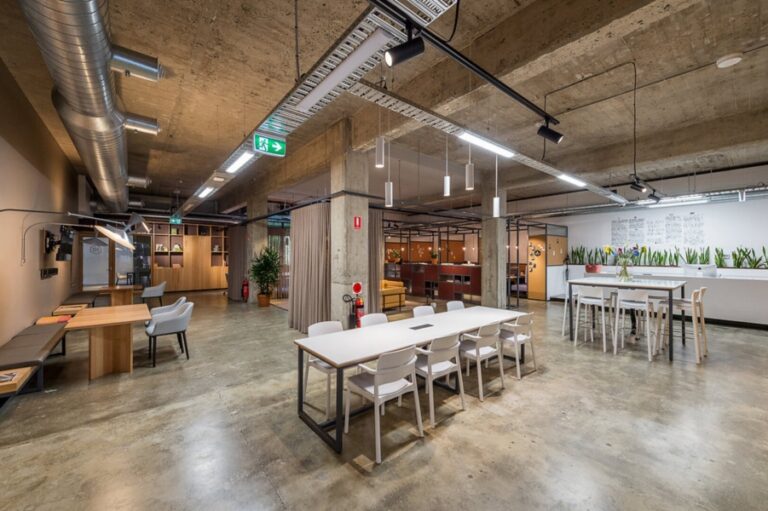Private Office Coworking Space Best Options & Benefits for Teams in 2025
In today’s flexible work environment, selecting the private office coworking space that fits your team’s culture, growth strategy, and budget can make a significant difference. Private offices within coworking hubs combine the prestige, privac,y and branding of a standalone office with the flexibility, community, ty and amenities of a coworking centre.
This article will guide you through what private office coworking spaces are, why they matter, the key benefits, five top providers in 2025, how technology elevates these spaces, how to choose and join one, and finally, an FAQ section to answer common questions.
What a Private Office Coworking Space Means
A private office coworking space refers fully enclosed, dedicated office suite within a coworking or flexible workspace environment. While you have your own locked-door office, you still benefit from shared amenities-lobby, lounge, meeting rooms, high-speed internet, and community events. Unlike open-desk coworking, you enjoy privacy, branding control, and often dedicated infrastructure for your team.
Private offices are particularly attractive to small and medium teams, remote-first companies, or satellite branches of larger organisations. They can scale more easily than traditional leases, often with shorter notice, and offer higher professionalism than pure open-desk coworking.
By combining privacy with flexibility, these solutions address modern needs: hybrid work policies, distributed teams, the need for client-facing spaces, and cost control. Businesses no longer want to commit to five-year leases in monolithic buildings-they want space they can adjust month-to-month, while maintaining brand identity and team continuity.
Benefits of a Private Office Coworking Space
Flexibility and Cost-Effectiveness
Private offices inside coworking hubs allow businesses to avoid the heavy commitments of a traditional lease: large deposits, long build-outs, fixed square footage. Instead, you may get a fully furnished suite, move-in ready, and your membership includes utilities, cleaning, security, and reception. This means predictable monthly costs and less risk.
For businesses seeking agility-perhaps scaling fast, testing new markets, or operating hybrid teams private office in a coworking offers the freedom to expand or shrink without the overhead of a full lease termination or relocation. Because you’re embedded in a larger operator’s building, you tap into economies of scale for amenities and infrastructure, too.
Enhanced Privacy, Branding & Professional Image
While coworking hot-desks offer cost savings, they lack control. A private office gives your team a dedicated space with your brand on the door, your own room for confidential meetings, the ability to customise décor, and a professional environment when clients or partners visit. It meets the needs of firms that require privacy and professionalism-legal firms, consultancies, remote-first HQs, and client-facing teams.
Combined with the community benefits of coworking-access to events, networking, and premium locations-you get the best of both worlds. The private office gives your team stability and identity; the coworking hub gives you access and flexibility.
What to Look For in a Top Private Office Coworking Space
When evaluating private offices within coworking spaces, here are the key criteria to focus on:
Location, Accessibility & Prestige
Does the centre sit in a reputable business district, near transit, parking, restaurants, and client amenities? A good location improves employee convenience and client impressions. If your private office is in a well-known coworking building, your address itself can boost brand credibility.
Membership Terms & Scalability
Review contract length, ability to scale up or down, sub-lease options, and flexibility in adding more desks. Shorter-term commitments (3-12 months) are preferable for many modern businesses rather than rigid 5-year leases. Also, check how easily you can move from a small suite to a larger one within the same building or operator.
Amenities, Technology & Support
Top providers include high-speed internet, AV-equipped meeting rooms, mobile booking apps, security access, reception, lounge areas, printing/scanning, and coffee/snack facilities. Also check the quality of interiors, sound insulation (important in private offices), and community or networking events.
Privacy & Customisation
Ensure your private office can be customised with your branding and has proper lockable doors, sound control, and tenant control over décor or furniture arrangement. Also,o confirm guest access and processes for client meetings.
Multi-Location Access & Hybrid Support
If you’re a distributed or hybrid team, look for providers offering access to other locations (within the city, country, globally) under one membership. Technology features like room booking apps, mobile keys, and remote onboarding are valuable.
Five Real-World Examples of Premier Private Office Coworking Providers
Here are five standout providers offering high-quality private office solutions within coworking environments. Each includes details of their offering, benefits, use-cases, and how to join.
1. WeWork
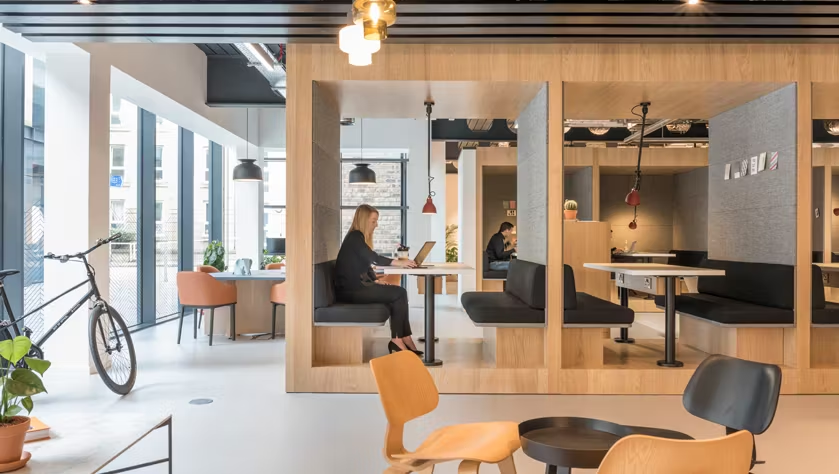
WeWork offers “Private Office” solutions for teams of any size, globally. Their website explains: “Furnished offices for teams of any size.”
Their offering includes move-in ready suites, high-end interiors, modern amenities, and access to a global partner network of coworking spaces. Whether your team is 5 people or 500, you can scale within WeWork’s ecosystem.
Use Case: A startup with 15 employees opens a regional HQ in Jakarta via WeWork, enabling quick setup, brand visibility in a prime business district, and access to local amenities without the long lease hassle.
Benefit: You get a private, professional office that feels bespoke but with coworking efficiency and built-in community. You avoid long build-out times, large capital investment, and you gain flexibility.
How to Join: Visit WeWork’s website, select your city and suite size, and request a tour or pricing quote.
[Join WeWork]
2. Industrious
Industrious offers private office memberships and suites that are fully furnished and include 24/7 access, complimentary meeting room hours, and support for hybrid and distributed teams.
Their design emphasises comfort, productivity, and a professional look and feel—ideal for small to mid-sized teams that want the private-office feel but with coworking flexibility.
Use Case: A consulting firm with 10 consultant-staff chooses Industrious for a private office to host client meetings, with a requirement for quality design, branding, and flexible scaling as they grow.
Benefit: Access to premium space, flexibility to scale, professional image for clients, all without losing the benefits of the oworking community and services.
How to Join: Go to the Industrious website, browse locations, select “Office Membership” for your team size, and schedule a tour.
[Join Industrious]
3. Spaces
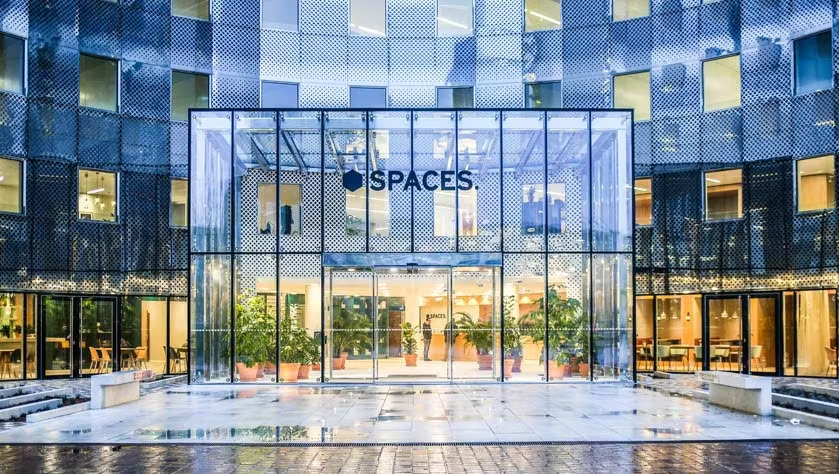
Spaces offers global office spaces and coworking with a widespread network (over 600 locations). Their offering spans private offices, coworking memberships, and dedicated desks.
Their private offices provide access to the broader Spaces community, multi-location flexibility, and high-quality interiors.
Use Case: A media startup expanding across Asia uses Spaces’ private offices in Singapore, Jakarta, and Kuala Lumpur, enabling consistent workspace aesthetics, team logistics, and brand presence across locations.
Benefit: Multi-city access via one operator, consistency in workspace experience, and a community of professionals internationally.
How to Join: Visit the Spaces website, select a location and office type, choose your team size, and membership term.
[Join Spaces]
4. Regus
Regus is one of the most established flexible office brands globally. They offer private offices alongside coworking and virtual office solutions.
Their strength lies in location coverage, global brand recognition, and flexibility of plans (hot desk, dedicated desk, private office).
Use Case: A multinational company wants satellite offices in multiple cities with minimal administrative overhead-chooses Regus private offices across urban centres for cost-efficient expansion.
Benefit: Global footprint, trusted brand, consistent service, ability to scale offices up or down with ease.
How to Join: Go to the Regus website, filter by city, select “Private Office”, and complete the contact application.
[Join Regus]
5. GoWork
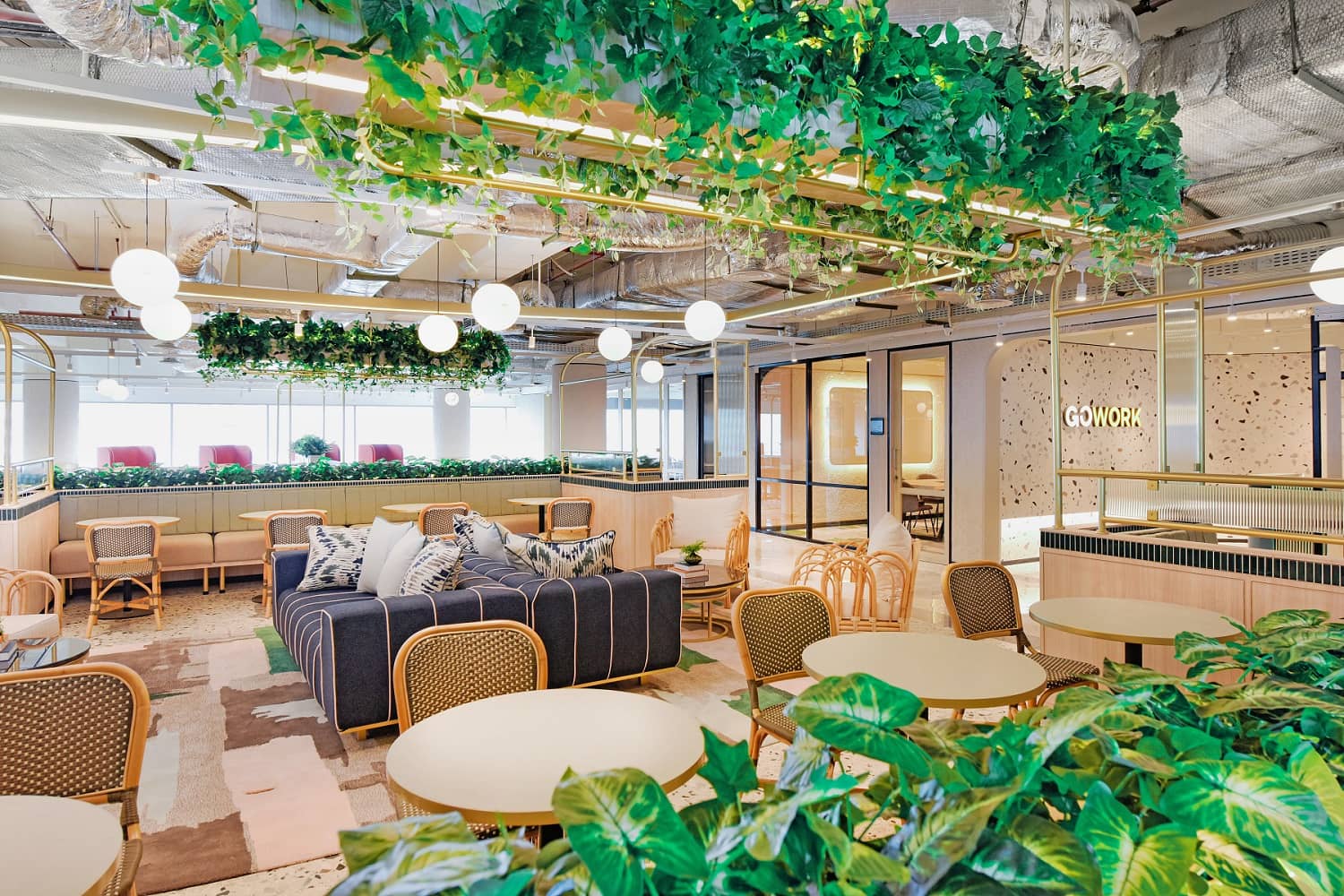
GoWork is a flexible workspace provider in Indonesia, offering private office and coworking solutions in Jakarta and beyond.
Their offering suits teams looking to establish a presence in Indonesia with private offices in prime business districts, along with coworking amenities and virtual office options.
Use Case: A foreign company entering the Indonesian market sets up a private office via GoWork in Jakarta’s Sudirman district, combining a private suite for their core team and hot-desks for visiting staff or regional collaborators.
Benefit: Cost-effective entry into an emerging market, flexibility to scale, local support, and a high-quality business address without a long-term lease commitment.
How to Join: Visit the GoWork website, submit your office size and location preference, and request a consultation.
[Join GoWork]
How Technology Enhances Private Office Coworking Spaces
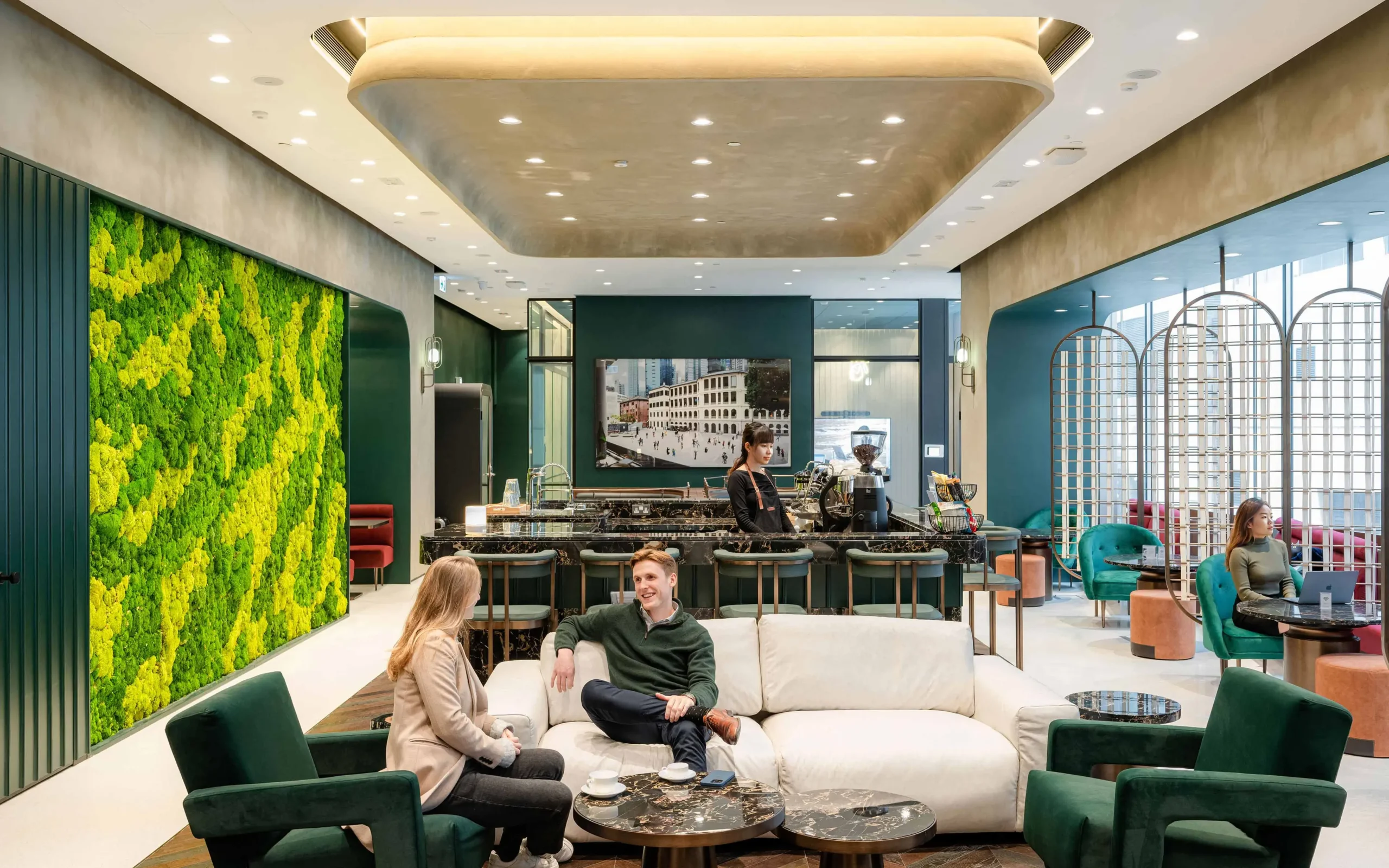
Technology underpins the modern private office coworking experience, delivering benefits in productivity, analytics, scalability, and user experience.
Digital Booking & Workspace Management
Members can reserve meeting rooms, book additional desks, extend their membership ,or access additional locations through apps. This brings agility and transparency to workspace management.
Smart Infrastructure & Connectivity
Top coworking private offices offer premium internet, network security, video-conference-ready meeting roo, roomsand often IoT features like occupancy sensors, smart lighting, and climate control. This tech-rich environment benefits teams that rely on high performance and modern tools.
Analytics & Scalable Operations
Operators collect data on usage, room bookings, peaktimests and community engagement. This enables them to optimise space, mang ,cos,ts and provide better service to private-office tenants-ultimately delivering better value to you.
Hybrid & Remote Team Integration
Private office coworking spaces now integrate with distributed work models: mobile check-in, global access, partner locations, secure remote-access networks, and virtual office extensions. Your private office becomes part of a broader hybrid ecosystem.
Use Cases: Why Your Business Needs a Private Office Coworking Space
Scaling Teams Without Long-Term Commitments
If your team is growing and you want the benefits of a dedicated office without signing a traditional five-year lease, a private office coworking space lets you move in quickly, scale seats as needed, and keep flexibility as you grow.
Remote-First or Hybrid Model Support
As many companies adopt hybrid models, a private office in coworking offers a base for your core team or client-facing presence, while also giving access to multiple locations for remote or travelling staff.
Professional Client-Facing Environment
For businesses where client perception matters (legal, finance, consultancy), having a private office in a high-end coworking centre enhances your image and credibility. You get your own branded suite, privacy for sensitive discussions, and meeting rooms at your fingertips.
Cost Efficiency & Operational Simplicity
By choosing a private office in coworking, you offload infrastructure, maintenance, reception, cleaning,ies,ilities and often IT support to the operator. This lets your team focus on business, not facilities.
Market Entry or Satellite Office
Entering a new city or region? A private office coworking space provides a prestigious address, minimal setup time, and a flexible exit strategy. It’s ideal for market testing or establishing a regional presence.
How to Join & Where to Buy a Private Office Coworking Space Membership
-
Define Your Needs – Number of seats, required privacy level, terms, location, budget, and amenities.
-
Shortlist Providers – Based on location, brand, flexibility, and quality (use the five above as a starting point).
-
Tour the Space – Visit locations, check sound insulation, comfort, support services, responsiveness of staff, and community vibe.
-
Review Contract Terms – Understand length, notice periods, scaling options, multi-location access, and cancellation terms.
-
Sign Up & Move In – Once you select the provider, complete the paperwork (often digital), set up your team, and customise your space.
You can commence memberships via the providers’ websites—they act like “buy” buttons for workspace. For example:
Frequently Asked Questions
Q1. What size team is suitable for a private office within a coworking space?
Private offices are versatile: small teams of 2-5 for a private suite, medium teams of 10-20 for larger suites, and even enterprise teams for dedicated floors. Choose based on your growth forecast and how much privacy/branding you need.
Q2. Can I scale up or down my private office membership easily?
Yes, most modern coworking operators build scalability into their contracts. You can often add more seats, upgrade suite size, or access additional locations. Down-scaling is sometimes more restricted, so check notice periods and exit options.
Q3. Is a private office coworking space more expensive than shared coworking?
Yes, generally a private office costs more than a hot-desk or dedicated desk because you get enclosed space, privacy, and potentially customisation. However, compared to leasing a standalone office, it often offers better value because of included amenities, shorter contract, and operator-managed infrastructure.
